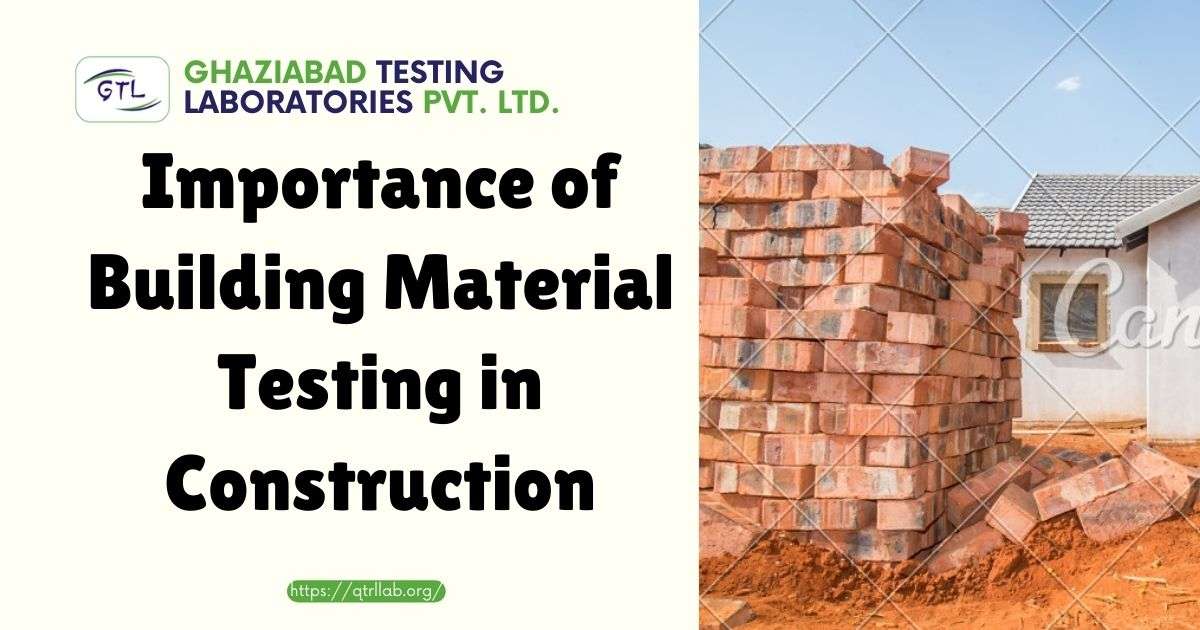In the world of construction and infrastructure development, the importance of using reliable building materials cannot be overstated. To ensure the quality and integrity of these materials, a crucial step is testing them in a certified laboratory. Choosing the right building material testing lab can make all the difference in the success of your project. In this comprehensive guide, we’ll walk you through the essential factors to consider when selecting a trustworthy material testing lab.
Why Building Material Testing Is Vital
Before delving into the tips for choosing the right lab, let’s first understand why material testing is so crucial in the construction industry. Quality assurance and safety are the primary reasons:
Ensuring Safety
Building materials need to meet specific safety standards. Testing helps identify potential hazards that might arise from using substandard materials. It ensures the safety of the people who will use or occupy the structure.
Compliance with Regulations
Regulations and building codes require materials to meet certain criteria. Testing confirms whether materials conform to these standards, preventing legal issues and costly rework.
Longevity and Durability
High-quality materials are essential for the longevity and durability of structures. Testing determines how materials will perform over time, preventing unexpected failures.
Cost Efficiency
Testing helps identify the most cost-effective materials that meet quality standards. It can save you money in the long run by avoiding unnecessary maintenance and repairs.
Tips for Choosing a Reliable Building Material Testing Lab
1. Accreditation and Certification
Look for a lab that is accredited by a recognized body. Accreditation ensures that the lab meets industry standards and follows rigorous testing protocols.
2. Experienced Staff
The expertise of the lab’s staff is critical. Ensure they have relevant qualifications and experience in the field of material testing.
3. Equipment and Technology
A reliable lab should be equipped with state-of-the-art technology and testing equipment. This ensures accurate and precise results.
4. Scope of Services
Consider the range of testing services offered by the lab. It should cover a wide variety of building materials, from concrete and steel to asphalt and more.
5. Turnaround Time
Time is often of the essence in construction projects. Choose a lab with a reasonable turnaround time to avoid project delays.
6. Cost
While cost is a factor, it should not be the sole determinant. Focus on the quality of service and reliability first.
7. References and Reputation
Check for reviews and references from past clients. A good reputation is a strong indicator of reliability.
8. Location
Opt for a lab that is conveniently located to minimize transportation costs and delays.
9. Transparency
The lab should be transparent about its testing procedures and the reporting of results. You should have easy access to test reports.
10. Customer Support
Effective communication and customer support are essential for a smooth testing process. Choose a lab that values your queries and concerns.
11. Environmental Responsibility
Look for a lab that adheres to environmentally responsible practices, especially if your project focuses on sustainability.
12. Sample Size
Ensure the lab can handle the required sample sizes for your project.
13. Turnkey Solutions
Some labs offer additional services, such as consulting and analysis of test results. Consider these value-added services.
14. Safety Protocols
Ask about the lab’s safety protocols and measures to protect its staff, your materials, and the environment.
15. Compatibility with Your Project
Finally, ensure the lab’s expertise aligns with the specific needs of your project, such as residential construction or infrastructure development.
Conclusion
Choosing a reliable building material testing lab is a critical step in ensuring the success and safety of your construction project. By considering the factors mentioned above, you can make an informed decision and partner with a lab that meets your specific requirements.
FAQs
1. What is the importance of material testing in construction?
Material testing in construction is essential to ensure the safety, compliance with regulations, longevity, and cost efficiency of structures. It helps identify potential hazards, ensures quality, and saves money in the long run.
2. How do I know if a material testing lab is accredited?
An accredited material testing lab will have certifications from recognized bodies. You can request proof of accreditation from the lab and verify it with the accrediting organization.
3. What is the significance of turnaround time in material testing?
Turnaround time is crucial because it affects project timelines. A lab with a reasonable turnaround time ensures that you receive test results promptly, preventing unnecessary delays.
4. Can I use the same material testing lab for different types of building materials?
Yes, many labs offer a wide range of testing services that cover various building materials. Choosing one lab for multiple materials can streamline the testing process.
5. How can I ensure that a material testing lab follows environmental responsibility?
You can inquire about the lab’s environmental practices and certifications. Look for signs of responsible waste disposal, energy efficiency, and sustainable testing methods.















